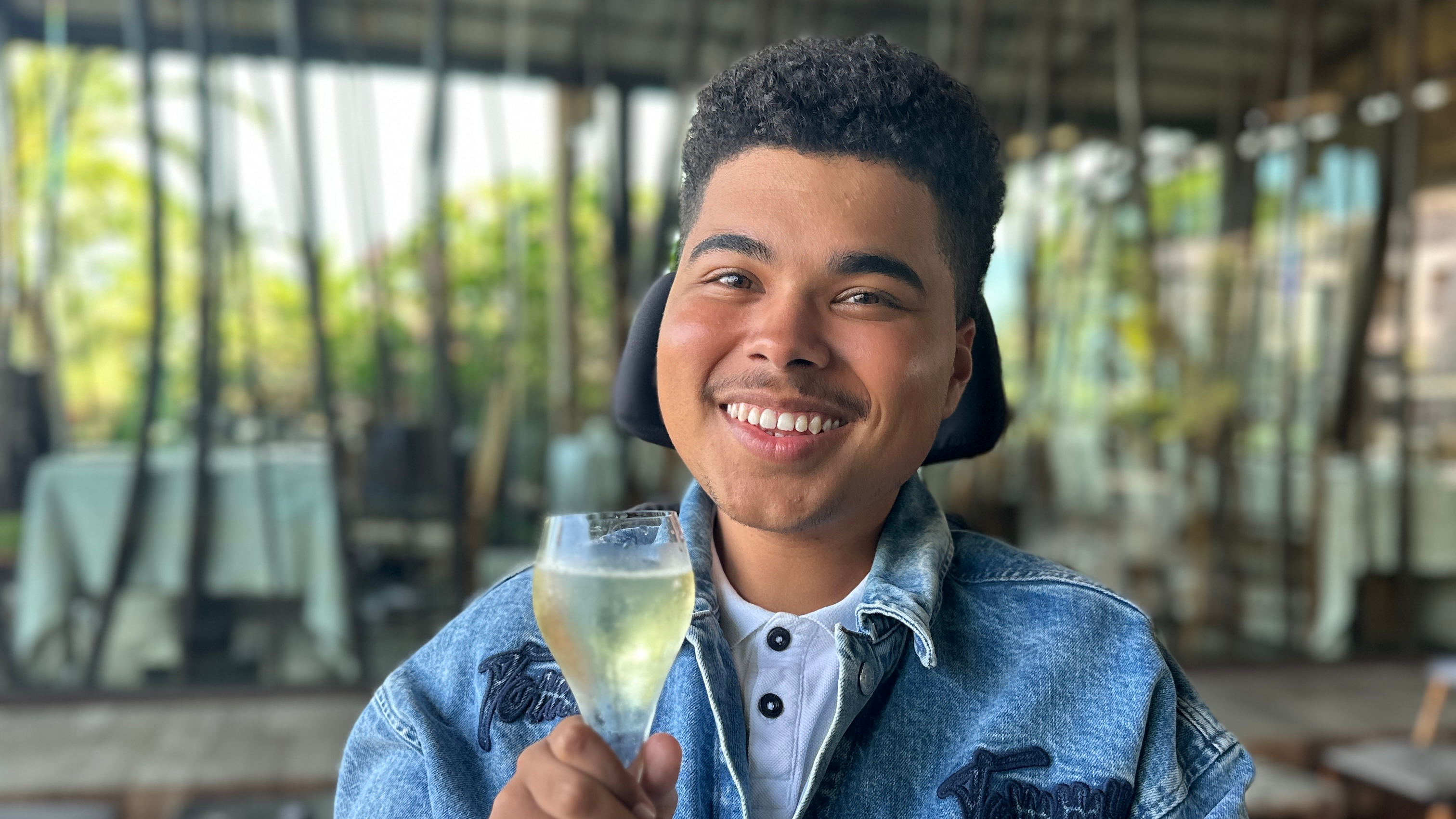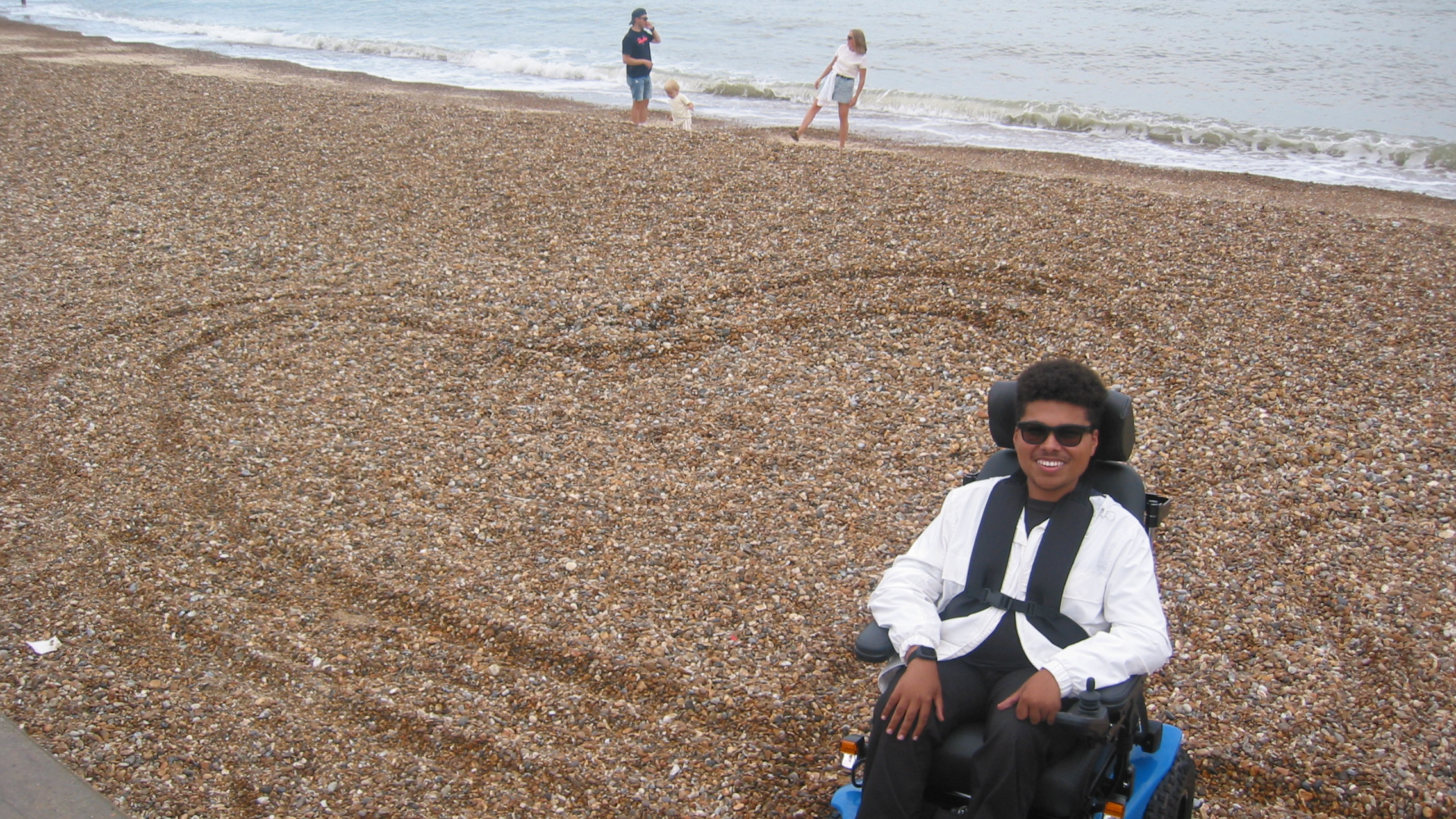Preparing for university can be difficult as a powered wheelchair user, especially as help and resources for this transition are often limited.
Preparing for university can be difficult as a powered wheelchair user, especially as help and resources for this transition are often limited.
In this article, our placement student Maxwell McKnight shares his top tips for navigating university as a wheelchair user.
Maxwell is a final-year Business Management student having completed a placement at Motability Operations. Maxwell was diagnosed with Spinal Muscular Atrophy Type 2 aged two. This muscle-wasting condition meant he became a full-time powered wheelchair user by two-and-a-half.
In my opinion, lived experience is the best kind of knowledge. It includes all the things that did not go to plan or that you wish you’d known in hindsight. That’s why I want to share my top tips to help you, or someone you know, get the most out of university and have the control over your future that you deserve.
Planning ahead
Looking back, one thing I’ve learned is that time is something wheelchair users need more of. Planning needs to be done in fine detail to prepare for every outcome and make sure the right support is in place.
Most sixth form students choose their university in their final year, with backup options in case they do not get the grades they hoped for. But if you’re a wheelchair user, finding a university that meets your access needs is a much bigger task, especially when building work or environmental adaptations might be needed.
When I started looking for a university, I began with my grades and used UCAS to build a shortlist. I only found out about a truly accessible university through a friend. He’d gone there nearly twenty years before, but they were already focused on access back then. That told me a lot. If they were good at it then, they were probably even better now. And they were.
The challenge is that you often need these changes to start before you even have a confirmed place. That’s why my biggest piece of advice is this: when you or your child finishes their GCSEs, start researching universities right away. This gives you two full years to make access plans, request adjustments, and ensure everything’s ready before you arrive.
Personally, I had to choose a university based on accessibility rather than education because I ran out of time. Luckily, I had the grades to secure an unconditional offer. That gave me just enough time in the summer before I started to work with the university and make some minor adaptations to their already good facilities (which is why I chose them in the first place).
Most universities have an accessibility team or disability support manager. Start by contacting them after finishing secondary school to learn about student life, accommodation, and what adjustments can be made.
UCAS has some good advice on preparing for open days and visits as a disabled student. It’s a good chance to meet the university’s disability adviser to student support team to see how they can support you.
I recommend researching a shortlist of three universities:
- One that’s a stretch academically for your chosen degree
- One that’s well within your grade expectations
- And a backup option selected purely for accessibility
This approach lets you plan for all scenarios, just like everyone else, but with a head start.
Adjusting to life on campus
Campus life can feel overwhelming at first. New faces, new places, and new routines. Before your classes begin, arrange a walkaround with someone from the accessibility team. Find out where your rooms will be and work out the easiest, most accessible routes. Decide where you’ll sit in class, so you know the space works for you.
After your first seminar, you’ll get a feel for your dynamic with lecturers and classmates. Make sure your lecturers are aware of your reasonable adjustments, either in person or by email, so they can take your needs into account when making changes in the future.
Moving from school to university is a big leap, especially when it comes to support. At school, you might have had a detailed support plan that was reviewed often. At university, that responsibility shifts to you. You’ll need to be proactive and tell the right people about your needs. If you do not mention something, it might not get addressed. Open days are a great time to explore the buildings and start those early conversations. You might even meet a few of your future lecturers or classmates while you’re there.
We’re fortunate to live in a world where access is slowly improving, but older university towns can still have inaccessible pubs and clubs. Student nightlife might take you to places that are not fully wheelchair-friendly. You might sometimes be separated from your group, and that’s why early friendships matter.
Make friends with people who understand your needs and who are willing to adapt plans so you can join in. The right friends will suggest going somewhere else so that everyone can be together. Friendship also makes everyday things easier, like moving a chair in class or helping with tricky doors.
Be as open and confident as you can be on your first day as it sets the tone for the years ahead. It’s hard to shift first impressions, so start strong, be bold, and do not be afraid to have those conversations that lead to lifelong friendships.
Check out Emma Muldoon’s guide to attending university as a wheelchair user.
Final thoughts
University is an incredible experience, and while it can take more planning when you have access needs, that should not put you off. In fact, I’ve found it to be the most accessible stage of education in my life so far.
It’s often easier than what you’ve already faced, and the rewards are bigger too. If you’re looking for extra support, the Disabled Students’ Allowance (DSA) can help with funding for equipment, technology, and other practical support. For me, that meant taxis to campus when public transport wasn’t accessible. Later, it became subsidised fuel once I had my own Scheme Wheelchair Accessible Vehicle (WAV), which made things even easier.
You apply for DSA through your student finance. It’s often the key to unlocking the support you need and getting connected with the right people.
Check if the Motability Scheme is right for you
Over 860,000 customers use the Motability Scheme to stay mobile.
You’ll get a full package, including insurance, servicing and breakdown cover. We’ll help you get where you need to go, whether that’s school, work or the shops.
Check now to see if you could join them.
![]()







